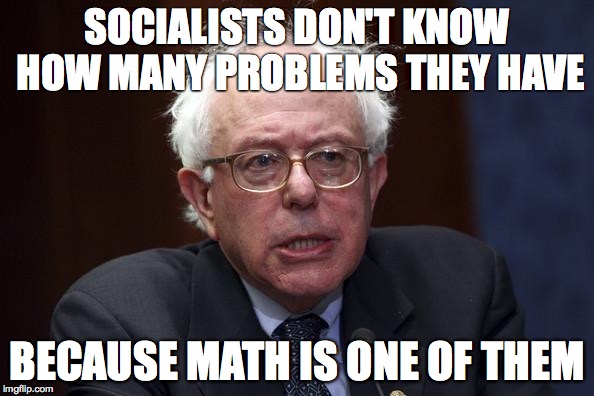Re: From Sanders to Trump - What a Long Strange Trip it'll Be
some interesting descriptions of the 2 political parties, taken from a book review dated tomorrow in the ny times.
and
some interesting descriptions of the 2 political parties, taken from a book review dated tomorrow in the ny times.
Echoing the historian Lily Geismer, Frank argues that the Democratic Party — once “the Party of the People” — now caters to the interests of a “professional-managerial class” consisting of lawyers, doctors, professors, scientists, programmers, even investment bankers. These affluent city dwellers and suburbanites believe firmly in meritocracy and individual opportunity, but shun the kind of social policies that once gave a real leg up to the working class. In the book, Frank points to the Democrats’ neglect of organized labor and support for Nafta as examples of this sensibility, in which “you get what you deserve, and what you deserve is defined by how you did in school.” In more recent columns, he has linked this neglect to the rise of a figure like Sanders, who says forthrightly what the party leadership might prefer to obscure: Current approaches aren’t working — and unless something dramatic happens, Americans are heading for a society in which a tiny elite controls most of the wealth, *resources and decision-making power.
The problem, in Frank’s view, is not simply that mainstream Democrats have failed to address growing inequality. Instead, he suggests something more sinister: Today’s leading Democrats actually don’t want to reduce inequality because they believe that inequality is the normal and righteous order of things. As proof, he points to the famously impolitic Larry Summers, whose background as a former president of Harvard, former Treasury secretary and former chief economist of the World Bank embodies all that Frank abhors about modern Democrats. “One of the reasons that inequality has probably gone up in our society is that people are being treated closer to the way that they’re supposed to be treated,” Summers commented early in the Obama administration.
“Remember, as you let that last sentence slide slowly down your throat, that this was a Democrat saying this,” Frank writes. From this mind-set stems everything that the Democrats have done to betray the masses, from Bill Clinton’s crime bill and welfare reform policies to Obama’s failure to rein in Wall Street, according to Frank. No surprise, under the circumstances, that the working class might look elsewhere for satisfying political options.
The problem, in Frank’s view, is not simply that mainstream Democrats have failed to address growing inequality. Instead, he suggests something more sinister: Today’s leading Democrats actually don’t want to reduce inequality because they believe that inequality is the normal and righteous order of things. As proof, he points to the famously impolitic Larry Summers, whose background as a former president of Harvard, former Treasury secretary and former chief economist of the World Bank embodies all that Frank abhors about modern Democrats. “One of the reasons that inequality has probably gone up in our society is that people are being treated closer to the way that they’re supposed to be treated,” Summers commented early in the Obama administration.
“Remember, as you let that last sentence slide slowly down your throat, that this was a Democrat saying this,” Frank writes. From this mind-set stems everything that the Democrats have done to betray the masses, from Bill Clinton’s crime bill and welfare reform policies to Obama’s failure to rein in Wall Street, according to Frank. No surprise, under the circumstances, that the working class might look elsewhere for satisfying political options.
Fraser agrees with Frank that the Democratic Party can no longer reasonably claim to be the party of the working class or the “little man.” Instead, he argues, the Republican and Democratic parties now represent two different elite constituencies, each with its own culture and interests and modes of thought. Fraser describes today’s Republicans as the party of “family capitalism,” encompassing everyone from the mom-and-pop business owner on up to “entrepreneurial maestros” such as the Koch brothers, Linda McMahon and Donald Trump. The Democrats, by contrast, represent the managerial world spawned by modernity, including the big universities and government bureaucracies as well as “techno frontiersmen” like Mark Zuckerberg and Bill Gates. These are two different ways of relating to the world — one cosmopolitan and interconnected, the other patriarchal and hierarchical. Neither one, however, offers much to working-class voters.


Comment